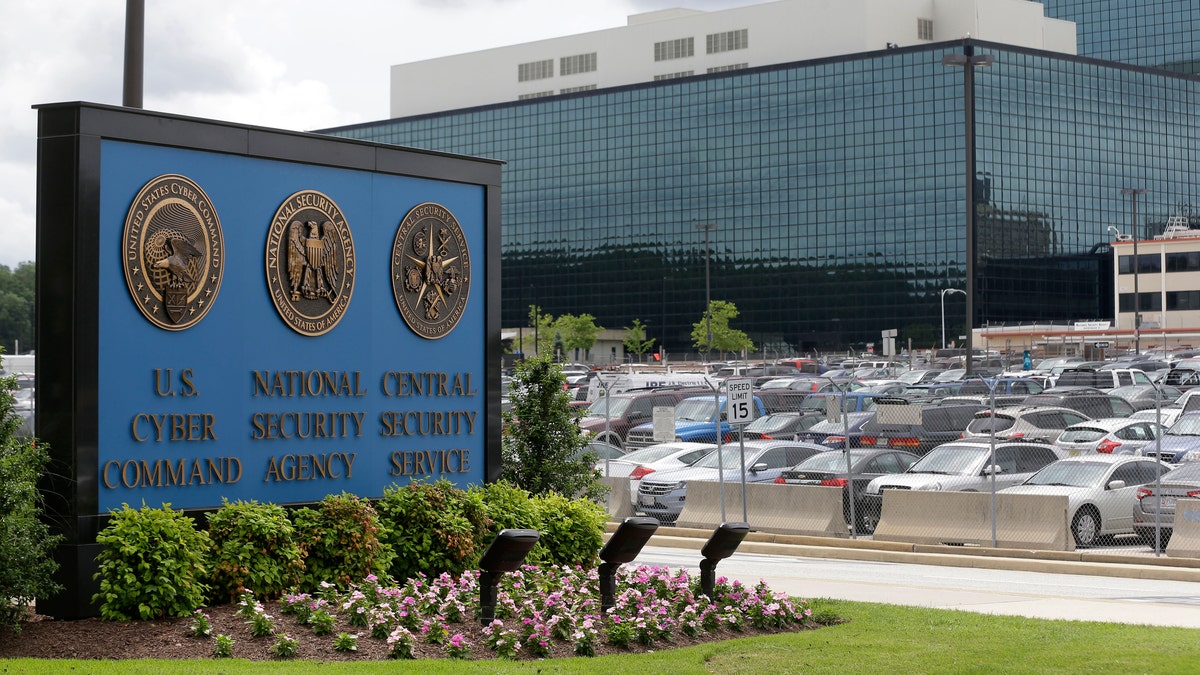
FILE - This June 6, 2013 file photo shows a sign outside the National Security Agency (NSA) campus in Fort Meade, Md. A civil rights lawyer says the American Civil Liberties Union (ACLU) is very disappointed that a New York judge has found that a government program that collects millions of Americans' telephone records is legal. (AP Photo/Patrick Semansky, File) (The Associated Press)
There are no easy answers when it comes to keeping the government out of the lives of innocent Americans without sacrificing safety or national security. That fact was on full display at the recent Republican presidential debate in Las Vegas. While heated exchanges and political posturing demonstrated the issue’s significance, the conversation unfortunately lacked critical facts.
It’s paramount that our political leaders are accurate when discussing our nation’s counterterrorism policies because, despite claims to the contrary, significant legislative compromises have been reached that interlace both security and privacy to the greatest advantage of the American people.
The terror attacks of September 11, 2001 reignited a conversation on national security. In the aftermath of the attack, Congress easily passed the USA PATRIOT Act. This legislation was designed to make America safer by enhancing the government’s ability to find and stop terrorist attacks, while simultaneously maintaining the civil liberties that distinguish the United States from our enemies.
The government, however, broke the law. Rather than collecting records “relevant to an authorized investigation,” as the law required, the government collected everything—the details of every call made to or from every American just in case the calls became relevant later. The program was breathtaking in scope and well beyond the limits Congress intended. A federal appellate court recently held that the program violated the PATRIOT Act.
Not only was the government’s bulk collection illegal, it was also ineffective. After initially claiming that the bulk collection program thwarted 54 terrorist attacks, the National Security Agency later conceded that it probably hadn’t stopped any.
Not only was the government’s bulk collection illegal, it was also ineffective. After initially claiming that the bulk collection program thwarted 54 terrorist attacks, the National Security Agency later conceded that it probably hadn’t stopped any. The Privacy and Civil Liberties Oversight Board and a review group commissioned by the President both reviewed classified evidence and both recommended against continuing the program.
Meanwhile, the Boston bombing, the Paris attack, and the San Bernardino shootings all happened despite the government’s bulk collection—demonstrating with real world tragedies that giving the government intimate details of our lives is no guarantee of safety. In addition, more is not necessarily better. Inundating analysts with oceans of irrelevant data only gags computer networks and increases the chances that analysts will miss key evidence.
It was against this backdrop of an illegal, intrusive, and ineffective program that Congress considered the USA FREEDOM Act. The law clarifies that the NSA cannot collect data in bulk. It also expressly authorizes a new program that allows intelligence agencies to a get a court order requiring phone companies to produce details of a suspect’s calls as well as the calls of people in contact with the suspect.
USA FREEDOM also authorizes the government to give the phone companies technical assistance to ensure that the government has access to all the relevant calls. Prior to the new law, for technical reasons, intelligence officials were largely limited to metadata from landline calls.
Post-USA FREEDOM, the government has the technical capacity to get both landline and cell phone records and calls made between them. According to the Office of the Director of National Intelligence, “the overall volume of call detail records subject to query pursuant to court order is greater under USA FREEDOM Act.”
The law has thus succeeded in granting the government access to more records from targets of investigations, but less access to records of innocent Americans. It was bipartisan and written in cooperation with the Department of Justice and the NSA. Both the Attorney General and the Director of the NSA endorsed the bill.
It is no coincidence that the law passed with an overwhelming bipartisan majority. But now, in efforts that appear purely political, some of our colleagues are using the law and the threat of ISIS to bolster their campaign efforts. Fear makes for easy politics, but would-be leaders should at least get their facts straight. Disingenuous claims will only lead to bad policies.
It makes sense that intelligence officials want to expand their authority. It was thus considerably prudent that the Constitution gives to Congress the ability to set limits. Not only are we directly accountable to the public, we also have the benefit of perspective and the ability to craft solutions that protect both our values and our security. The USA FREEDOM Act achieves this goal.








































